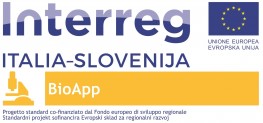BioLinX project
Project concluded

BioLinX will bridge research and innovation efforts in the bioeconomy by building three large clusters in Europe and initiating within them a range of powerful linking and innovation acceleration processes. The BioLinX partners have leading roles in the bioeconomies of South West Netherlands and Flanders, the Nordic Countries and Northern Italy and in the lignocellulose, agro- and agro-waste feedstock sectors.
The partners are all pioneers of systematic innovation management and cluster acceleration practices and between them have leading roles in over 45 current or recent collaborative bioeconomy projects. From this strong starting point they will select sixty or more FP7 and Horizon 2020 biobased projects from all stages of the value chain, form the BioLinX clusters and develop among them brokerage, collaborative innovation and business acceleration dynamics.
Specific objectives are:
- Selecting and scouting more than 60 high potential bio-economy projects,
- Developing a network of key regional bioeconomy clusters (i.e. RIS3 regions or equivalent) covering 3 geographical regions (north, central, south),
- Analysing, clustering and focusing selected FP7 and H2020 projects as well as the network of RIS3 bio-economy regions,
- Implementing the Innovation Linking & Support Programme consisting of activities focusing on Brokerage and Innovation incubation, Business development, finance and funding, Identifying and sharing good practices and Advocacy, communication and dissemination.
Contacts: Dennis van der Pas: d.vanderpas@rewin.nl




